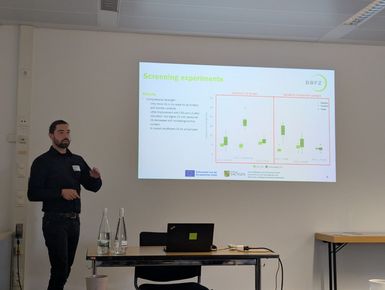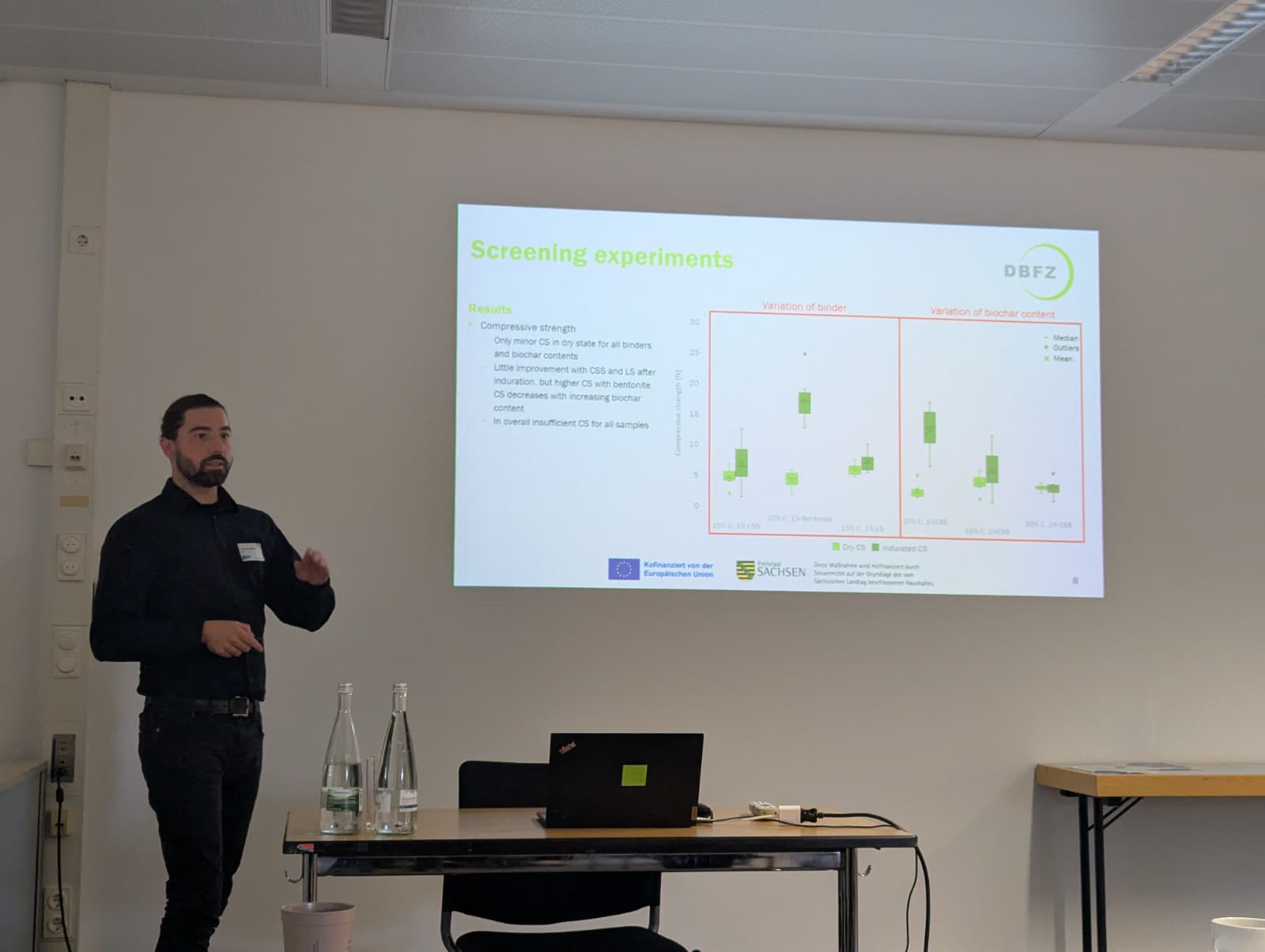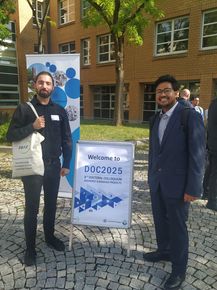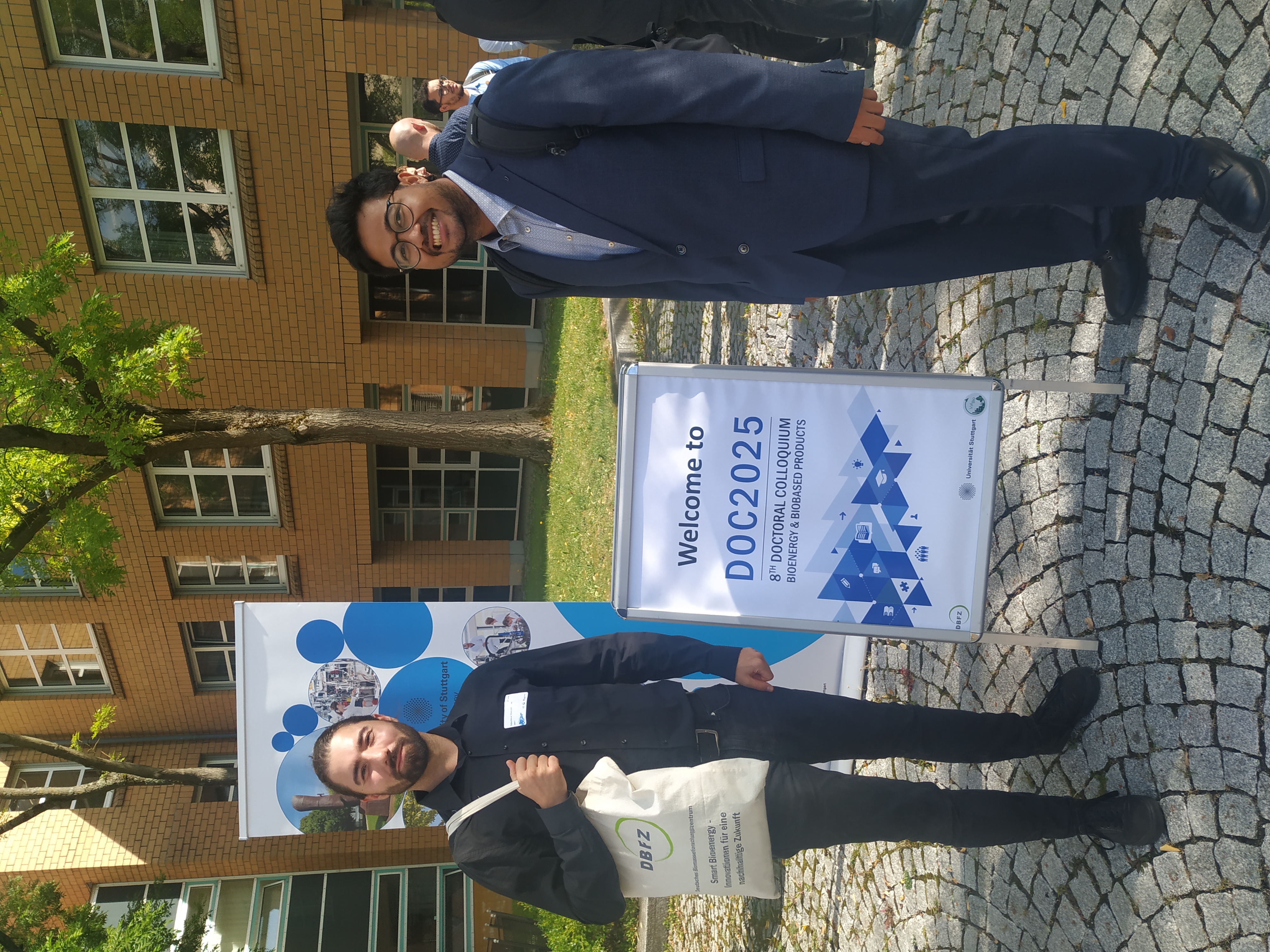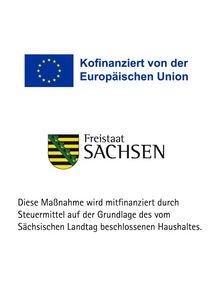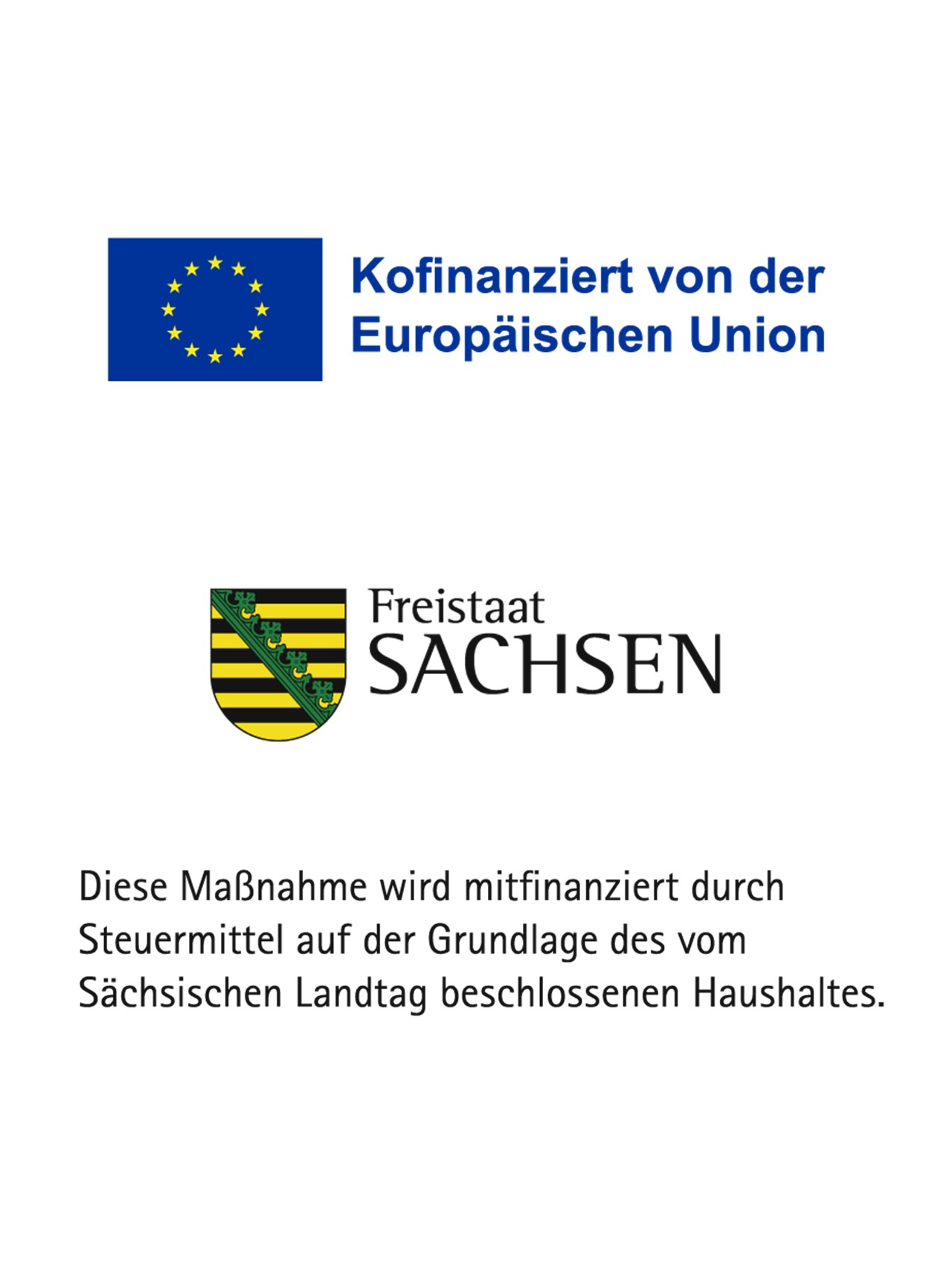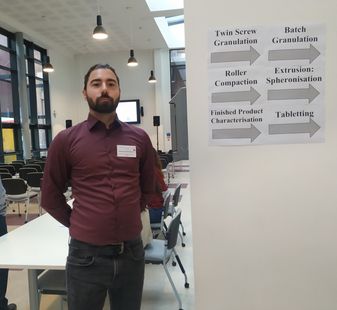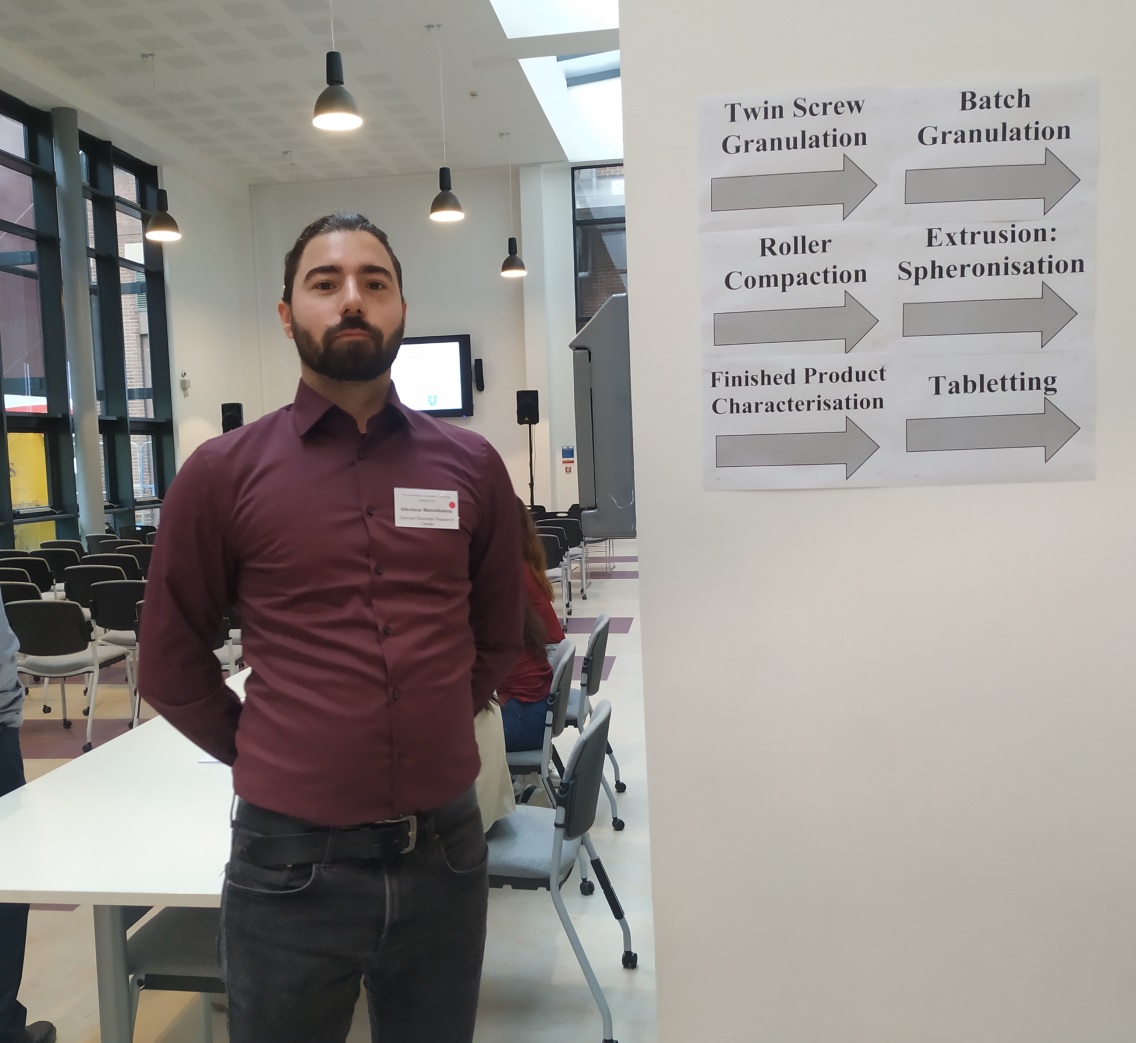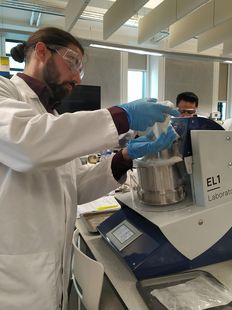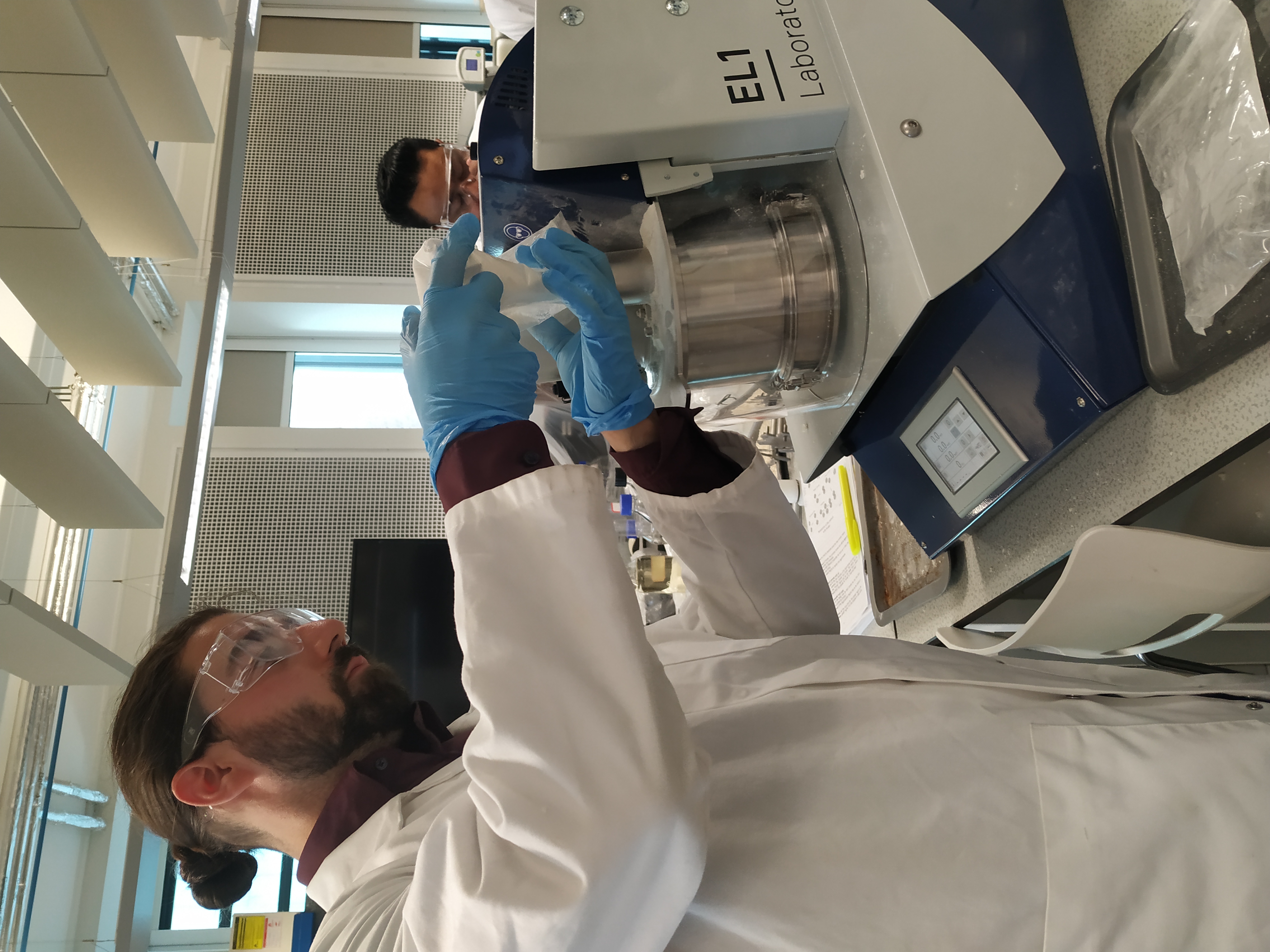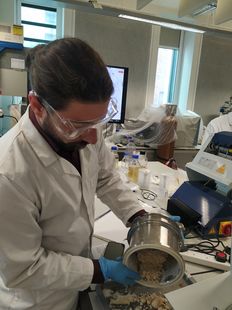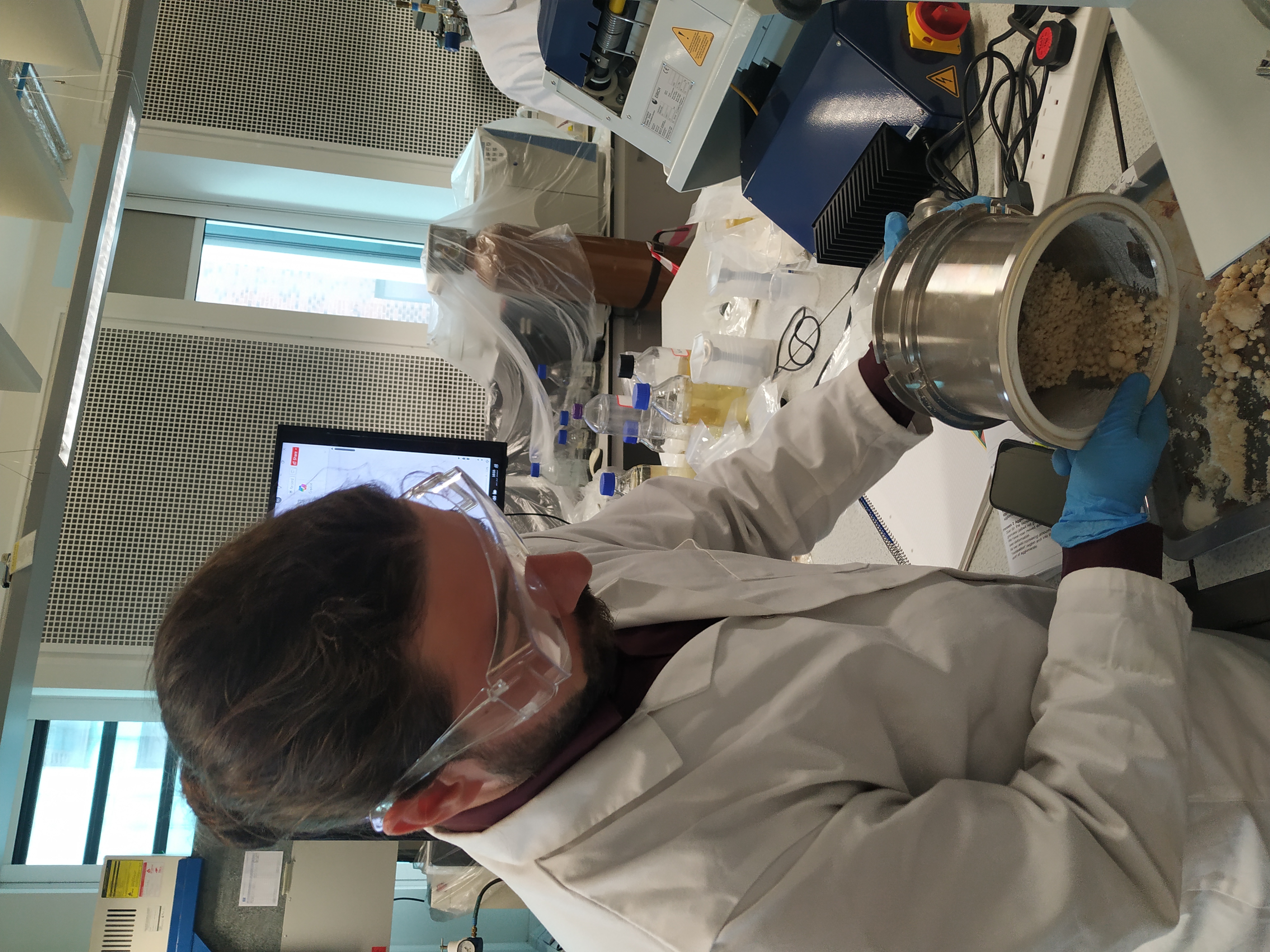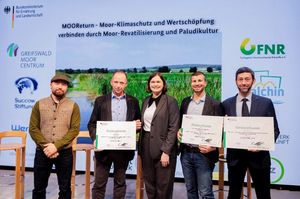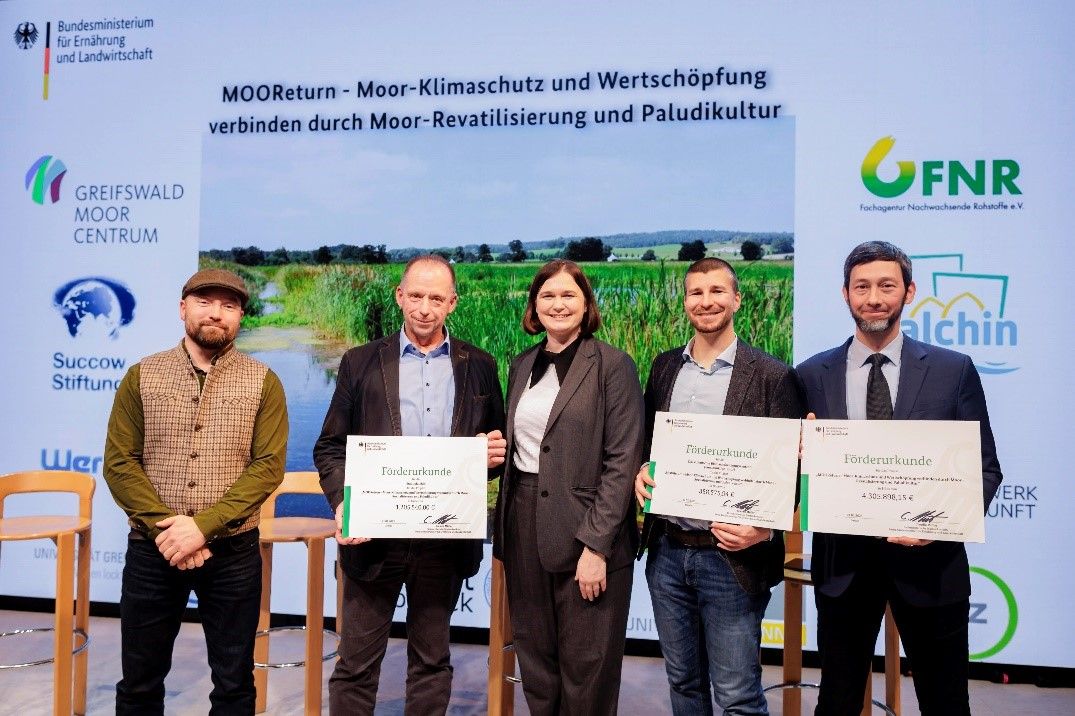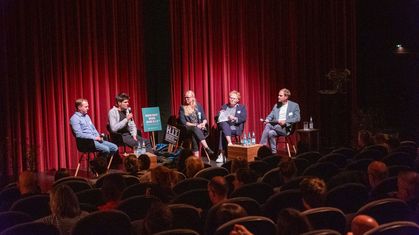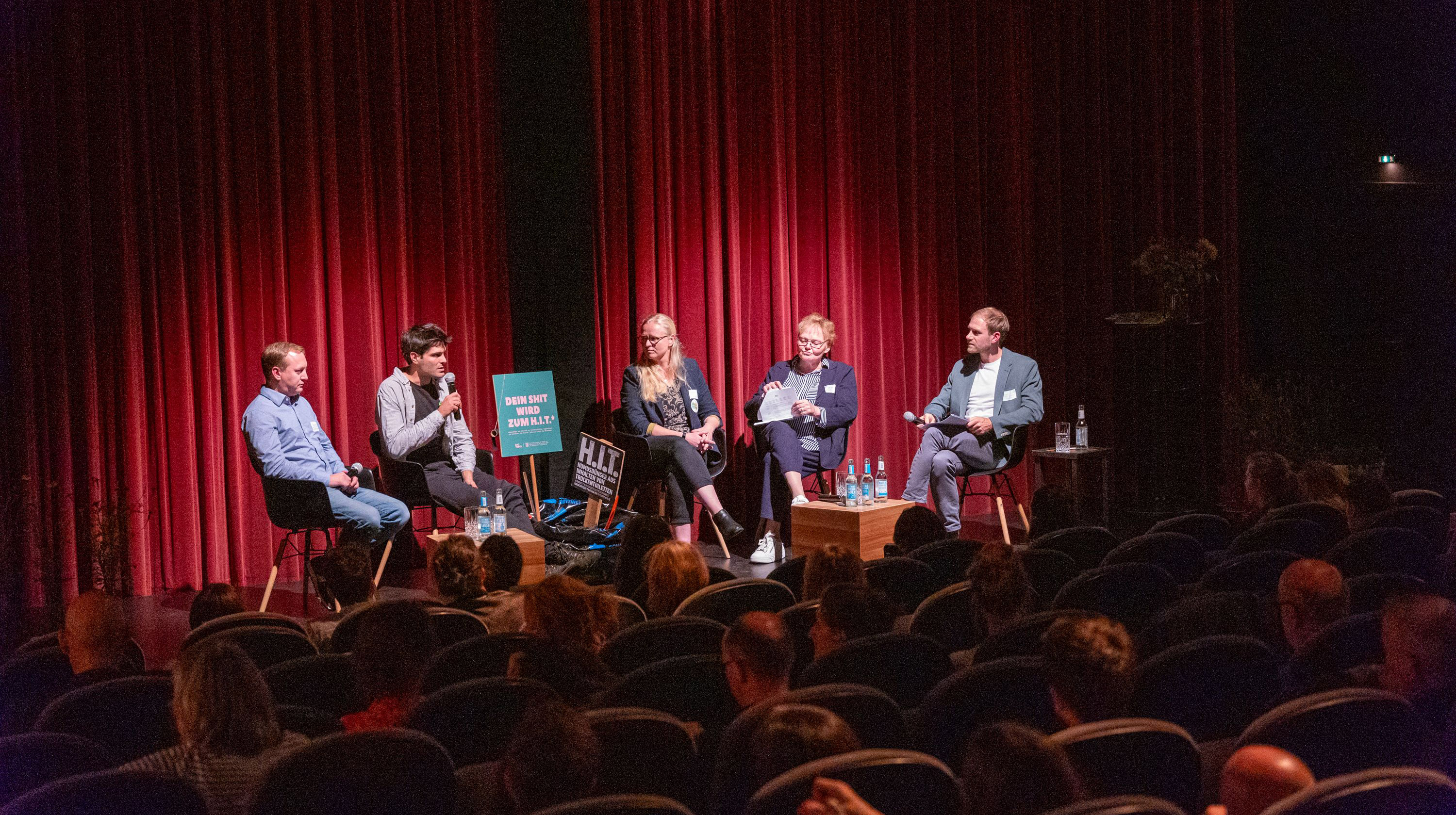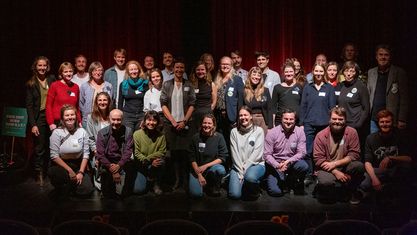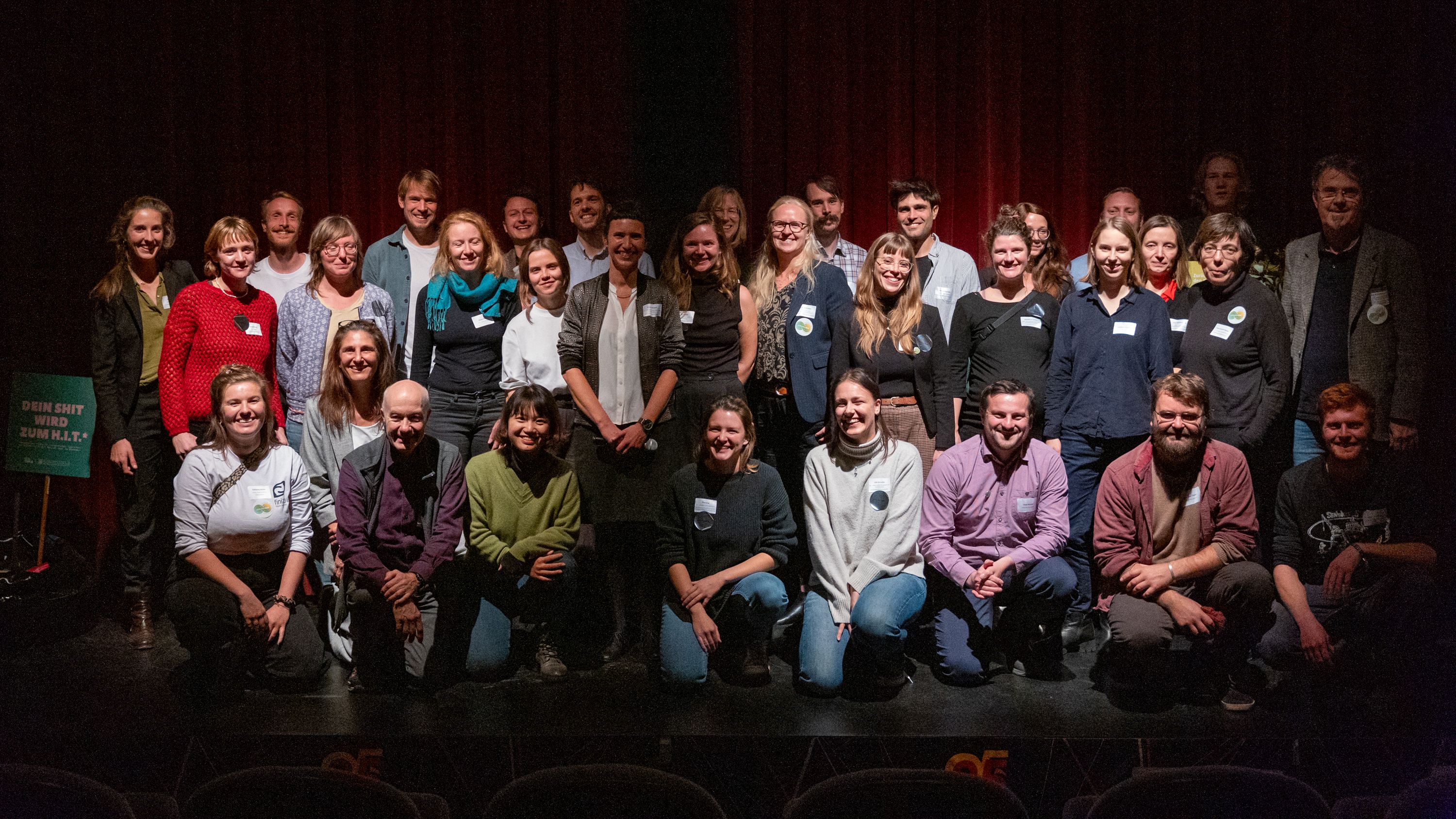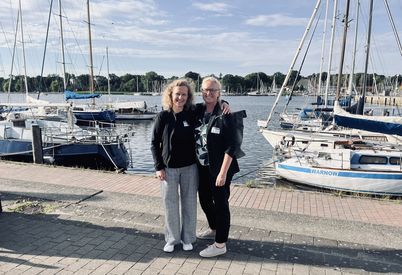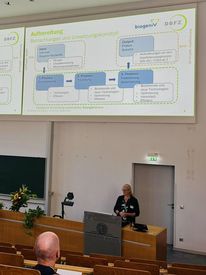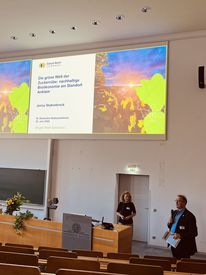News
8th Doctoral Colloquium 2025
The 8th Doctoral Colloquium for Bioenergy and Biobased Products took place at the University of Stuttgart from 10th to 12th of September 2025. This colloquium brings together doctoral students from all around the world to present the status of their current work on topics related to bioenergy and the bioeconomy.
The Mechanical Processing Working Group was represented by Nikolaus Manolikakes, who gave a presentation on his research within the current DBFZ project BioFe. The presentation focused on the use of organic binders in iron ore agglomeration.
In addition to the diverse range of lectures and poster presentations, the colloquium also offered the opportunity to exchange ideas with the researchers present during networking sessions, thus allowing participants to look beyond the horizon of one’s individual research project.
Expertise enhancement in the areas of granulation
The 11th International Granulation Workshop took place in Sheffield, England, on 23–24 June 2025. Nikolaus Manolikakes spent two days attending lectures and practical exercises to expand his knowledge of industrial applications of granulation. The workshop provided detailed insights into various applications and technologies of granulation, as well as important factors for raw material properties and analyses relevant to the granulation process.
Nikolaus Manolikakes is currently working on his doctoral thesis on the topic of "Investigation of the binding mechanisms of organic binders and the surface tension of raw materials in the agglomeration of iron ore", with the granulation process being an important agglomeration method.
MOOReturn - Research into the renaturation of peatlands
The renaturation of carbon-rich soils is not only important for slowing down climate change, but also for increasing biodiversity in peatlands and maintaining or regenerating their functions as water filters and carbon stores. The MOOReturn project is therefore an important step for the DBFZ towards sustainable development and climate protection as a showcase project both nationally and internationally.
Large-scale renaturation can only be achieved if economically viable prospects for peatland use exist for farmers in good time. On the other hand, companies are looking for renewable raw materials in order to continue producing sustainably. The project MOOReturn combines both aspects with concrete solutions for high-quality utilisation of peatland biomass.
To this end, the focus in the Malchin model region is on the utilisation of peat biomass from wet grassland management. A high-quality fibre pre-product is produced from the raw material with the aid of a processing chain. Thanks to this treatment step, value creation in the region can be increased and the sales spectrum significantly expanded. In the Malchin model region, a model production plant is to process approx. 5,000 tonnes of peat biomass, enabling it to process biomass from an area of up to 800 hectares. The kick-off meeting took place on 17 February 2025 with all partners at the Alte Wasserwerk in Malchin.
Further information on the project can be found at MOOReturn.
zirkulierBAR - Final event
On 17 October 2024, the final event of the BMFTR-funded research project zirkulierBAR took place. More than 140 participants in a fantastic atmosphere – in the large cinema theatre of the Hackesche Höfe Kino in Berlin Mitte.
In the project, the DBFZ is in charge of quality assurance, standardisation and identifying legal challenges in the production of humus and recycled fertiliser from dry separation toilet contents, together with partners. At an interactive project fair, Dr Claudia Kirsten and Dr Jana Mühlenberg were able to engage in intensive discussions with the participants. On the one hand, the topic of analytics and the safety of the fertilisers produced was presented, and on the other hand, there was an intensive exchange on the topic of ‘Why can't this great substrate be used?’ These discussions were based on our position papers on the current legal situation, which were developed within the consortium. The legal obstacles and hurdles, the highs and lows of the project, how to proceed and how we can address adjustments to the legal framework with the relevant authorities were topics discussed in the concluding panel discussion.
Women's power at the Biomass Forum on 20 June 2024 in Rostock
The guiding principle behind the biogeniV-WIR! alliance is the production of green methanol through the use of surplus, regionally sourced biogenic residues, biogenic CO2 and renewable electricity: initial results were presented at the 18th Rostock Biomass Forum in Rostock. Jenny Stukenbrock, responsible for sustainability and climate management at the Cosun Beet Company in Anklam, and Dr Claudia Kirsten gave presentations on "The green world of sugar beet’ and ‘Processing surplus biogenic residues".
There were interesting discussions and important ideas for further cascading uses of biogenic residues. However, many experts agreed that legal requirements are often the biggest obstacles and hurdles to the practical application of the circular bioeconomy and often slow down innovative approaches from R&D.
